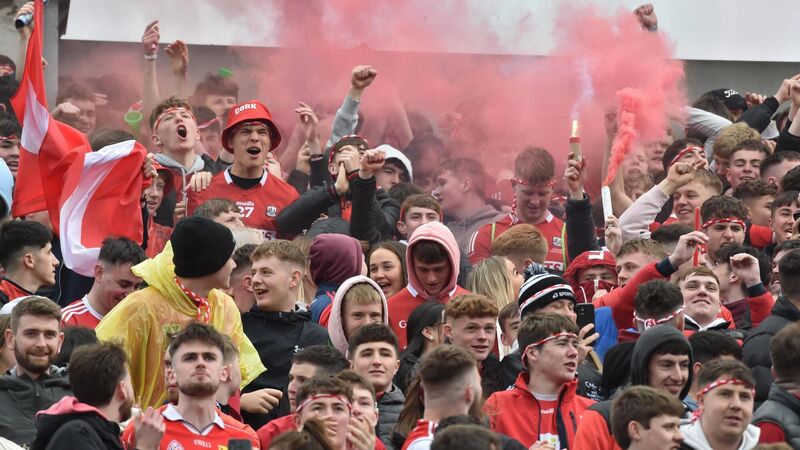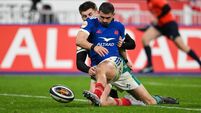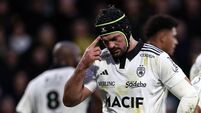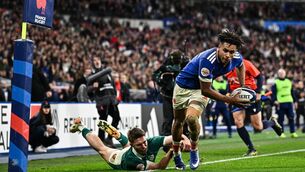Donal Lenihan: Dreaming of a special Munster night at Páirc Ui Chaoimh

Red all over: Cork supporters bring colour against Limerick at Pairc Ui Chaoimh last weekend. Pity Munster can't call on the same support there for a mouthwatering clash with Toulouse. Picture: Eddie O'Hare
ED Sheeran has a lot to answer for. Not only has he created a major issue for the Cork footballers, he has discommoded an even greater force in red by banishing Munster to Dublin for their mouthwatering Heineken Champions Cup quarter-final clash against mighty Toulouse next month.
If circumstances were slightly different, this would have been the dream contest to launch a first-ever Champions Cup knockout clash at Pairc Ui Chaoimh where, I’ve no doubt, a packed audience of 45,000 would have descended on the banks of the Lee to drive Munster’s quest for another European semi-final.










